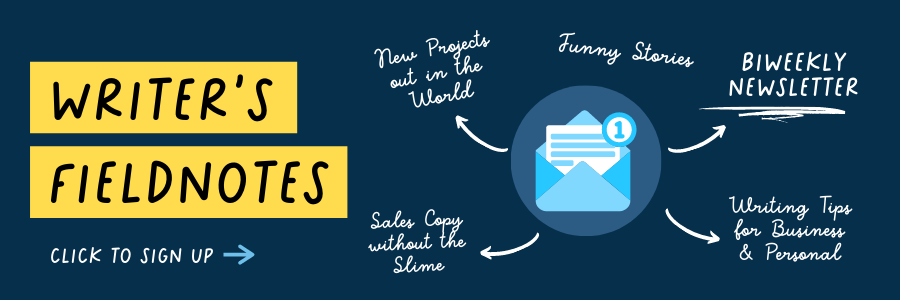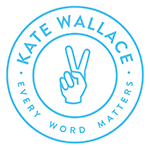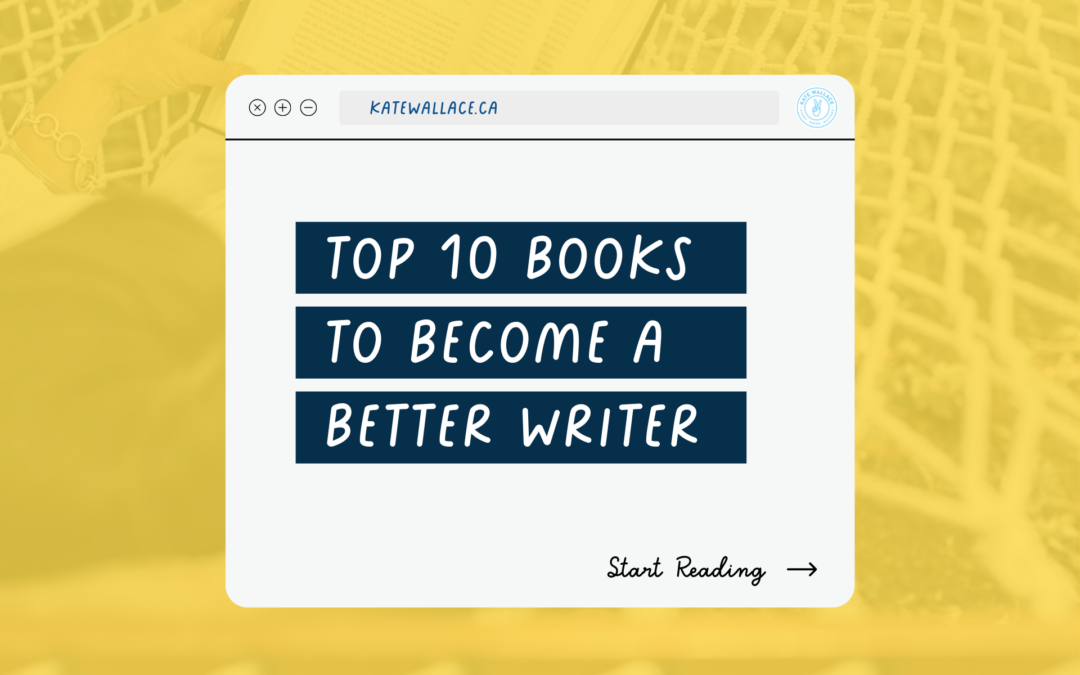It’s summer, the season for Top 10 Beach Reading lists. To counter the typical roundups of frothy fiction, I’ve gathered up my ten favourite books that show and tell you how to hone your writing chops.
While the list leans literary towards book authors and editors, their evergreen writing advice travels, to non-fiction, to writing for business and life.
#1: Bird by Bird by Anne Lamott
Nobody describes the agony of the first draft like Anne Lamott. This hilarious, insightful collection is jam-packed with the author’s most helpful writing advice, spiced with her trademark humour.
It’s reassuring to hear that even for a writer as successful and revered as Lamott, failures of confidence are part of the process.
Lamotte writes hilariously of the intense anxiety she experienced when she used to write a monthly restaurant review for California magazine. She was terrified of being involved in a fatal accident before she was done her assignment; that people would see her “shitty first draft” and mistake it for her final version. The horror!
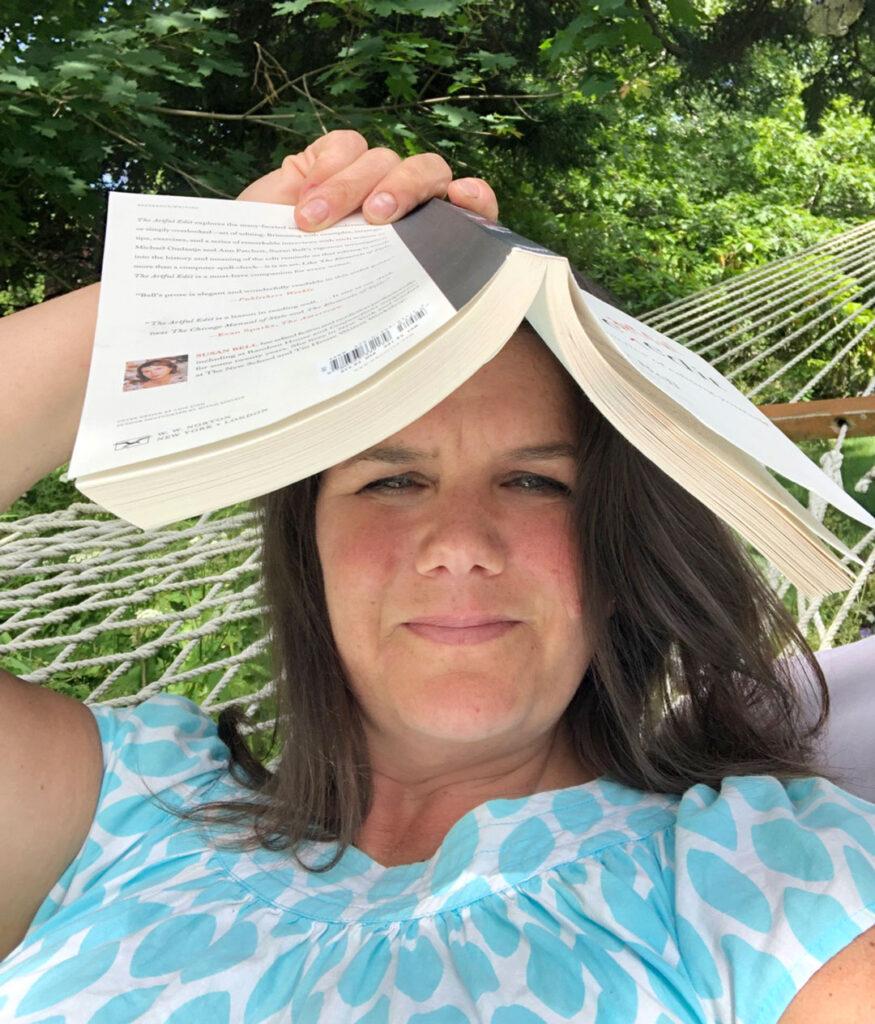
#2: The Artful Edit by Susan Bell
This book is so good that I keep loaning out copies that never get returned (I think I’m on my fifth, but likely not final, one. You’re welcome, Susan Bell).
I can’t really blame my recipients: I’m unwilling to live without this self-help guide, too. Subtitled “On the Practice of Editing Yourself,” it is rich with stories, examples and practical advice on the art and science of auto-editing, a practice of detachment that takes a lifetime (maybe longer?) to master.
While it veers literary—Bell is a veteran book editor—her advice is pertinent to all kinds of writing.
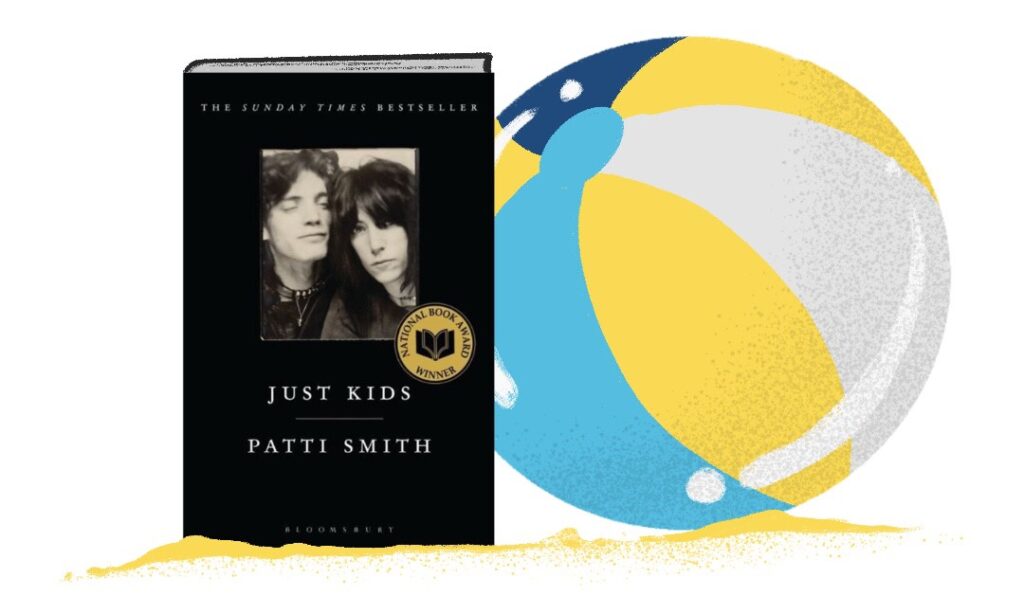
#3: Just Kids by Patti Smith
This is not a book about writing so much as a memoir of creative integrity. Patti’s smith autobiographical account of her early years in New York, with Robert Mapplethorpe, her partner at the time, is a tale about not selling out.
Her writing style–spare, direct, specific–and her ethos of fidelity to herself and her loved ones are instructive. I usually prefer to consume my books in paperbacks, but this work by an artist with such a clear, strong voice, the audiobook read by Smith is the full experience. Don your headphones, and enter her expansive world and mind.
#4: Wired for Story by Lisa Cron
Stories are so innate to the human experience that it’s easy to take them for granted. Yet we are deeply, neurologically, and biologically wired for stories.
This book explores, in easy-to-understand layperson’s terms, the brain science behind it, how stories activate empathy and how that contributed to our evolution and continues to matter today. Each chapter provides valuable writing tips to harness the power of story in our writing.
#5: Several short sentences about writing by Verlyn Klinkenborg
Thanks, Amazon, for recommending this slim, brilliant volume by the New York Times editor. Klinbenborg’s premise is that most of our received wisdom about writing is wrong and gets in the way of writing well.
Unlearning academic writing training, dispensing with myths about creativity and genius, and prioritizing good, strong sentences sans the usual orthodoxy and dogma is its aim. “This is a book of first steps,” Klinkenborg opens with. How’s that for a first line? Great place to start, I say.
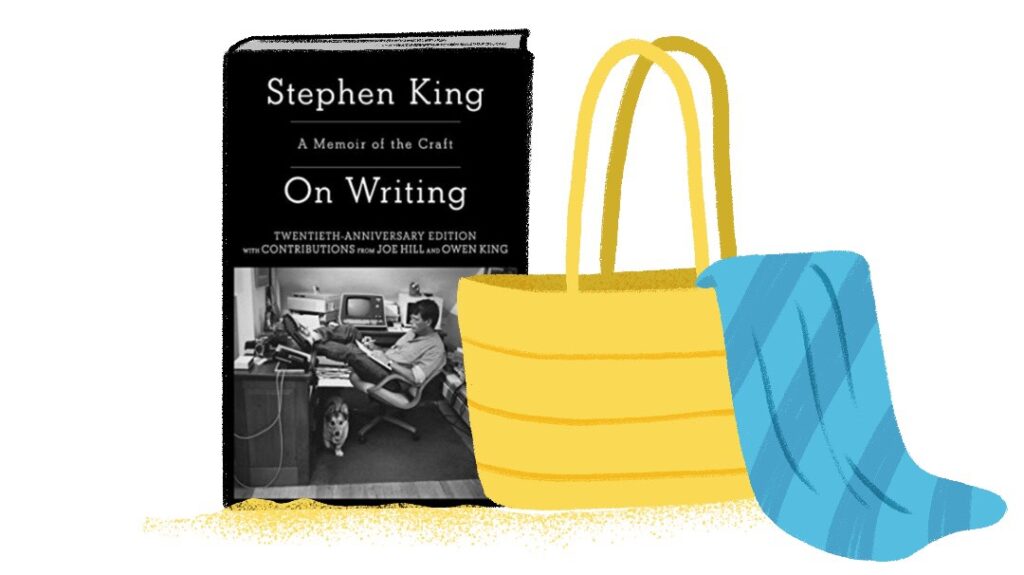
#6: On Writing by Stephen King
Before she retired, my mother-in-law once attended a one-hour seminar on business communications where the facilitator recommended this book, which she gifted to me that Christmas.
It kind of blew my mind. I must admit to having been a bit snobbish in the past about King’s books, mistaking mass-market appeal with low quality.
I was so, so wrong. Part memoir of a life centred around reading and writing, and part masterclass in how to get the work of writing done, it’s a fascinating story dotted with frank wisdom.
#7: The Library Book by Susan Orlean
If you write, you probably like books. If you like books, I’ll bet you like libraries. If you like libraries, you’ll love this non-fiction work by Susan Orlean that blends a crime mystery with personal perspectives and broader reflections on why writing, books and libraries matter.
“If something you learn or observe or imagine can be set down and saved, and if you can see your life reflected in previous lives, and can imagine it reflected in subsequent ones, you can begin to discover order and harmony,” she writes. “You know that you are part of a larger story that has shape and purpose—a tangible, familiar past and a constantly refreshed future.”
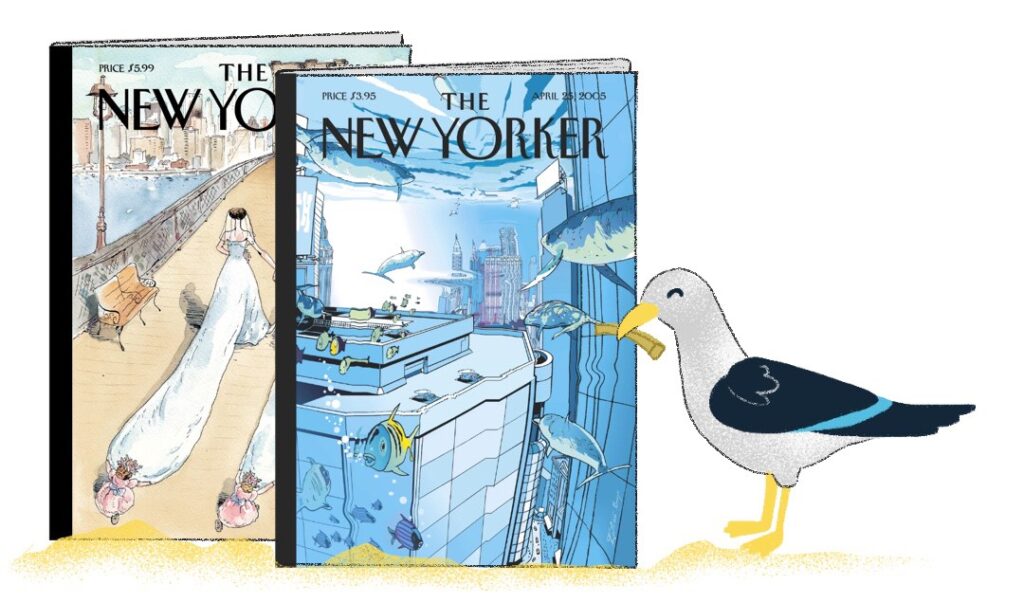
#8: The New Yorker
Not a book, a magazine, but the one I’d recommend if you want to absorb, through the osmosis of reading, a sinewy style that prioritizes clarity and concision across its stable of top-notch writers who, of course, each have their own style and voice.
One of the wonders, to me, of so many New Yorker pieces is how they explore and articulate big ideas using simple words and short sentences.
#9: The Most of Nora Ephron by Nora Ephron
My middle school understanding of romance between contemporary adults was largely informed by ‘When Harry Met Sally.” I’m still not sure if that’s a bad thing. It was my first taste of Nora Ephon’s storytelling talent and wit, and luckily not my last. Thanks to my friend and collaborator Robin for sharing her copy of this thick collection of Ephron’s various types of writing–journalism, essays, scripts for stage and screen, and more.
“Everything is copy,” she famously said and writes that “just about everything is a story.” What she means is that you have to pay attention, have a perspective and the courage to share it.
#10: Braiding Sweetgrass by Robin Wall Kimmerer
Another pick that’s not explicitly a book about writing but instructive nonetheless. The author, a member of the Potawatomi Tribe and a doctor of botany, blends science and Indigenous knowledge to propose a new relationship with the natural world. Kimmerer shows the power of synthesizing seemingly contradictory parts of ourselves and the world into something beautifully whole and new.
For the author, her writing is a way to give back to the world, and that’s a generous stance to borrow. How can we bring care and courage to our writing? How do we make it an offering, not a chore or obligation?
In between client projects, I’m looking forward to curling up at the cottage with a few of these. Is there one of your favourites that I’ve missed? Comment below with yours!
